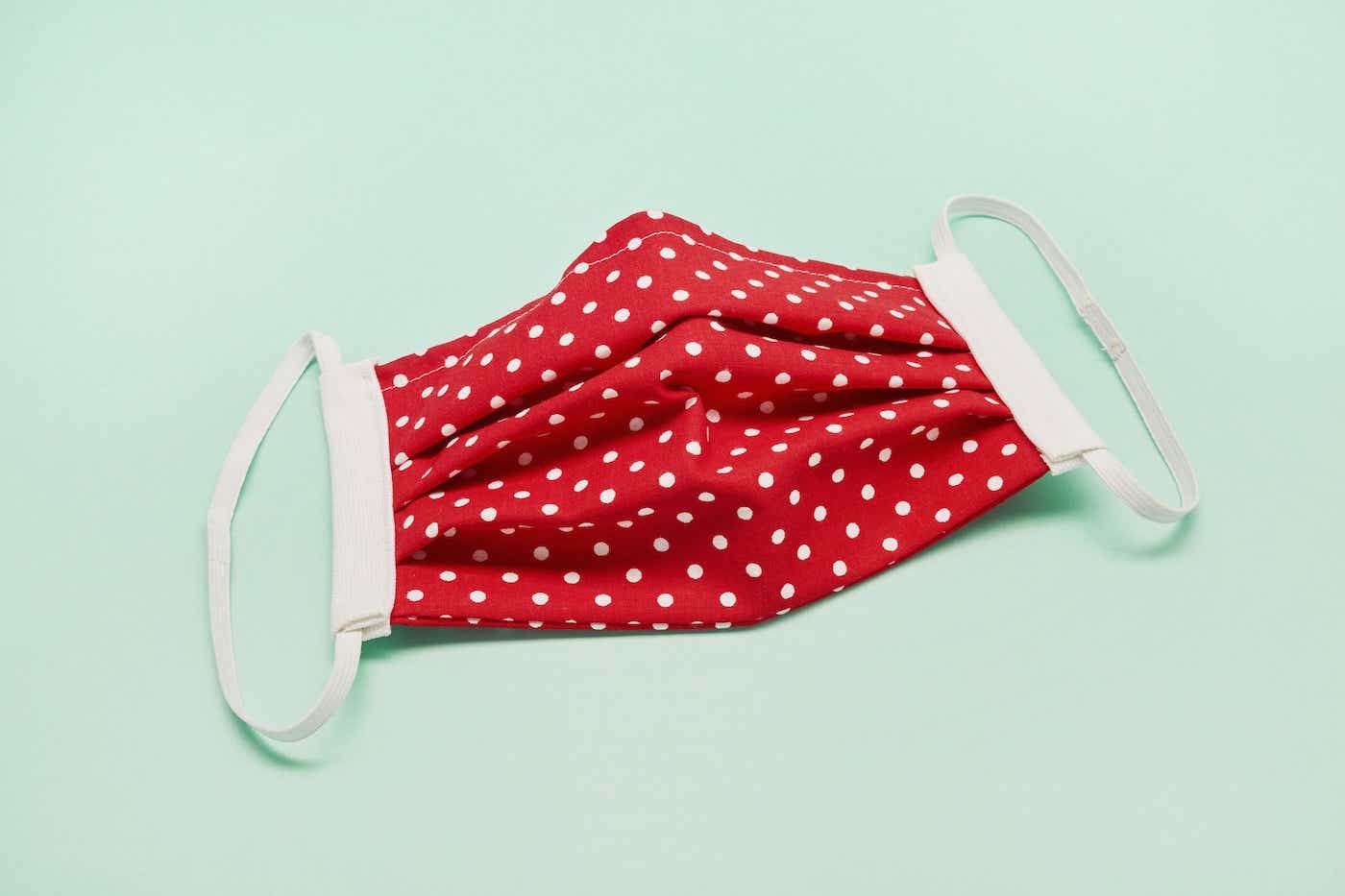Wearing some kind of face covering when you're out and about in public — or in settings where social distancing isn’t possible — has become part of life. Masks are a useful, and vital, tool for protecting ourselves and others from Covid-19, and they’ve quickly become a big part of our new routines. But for some of us, they have also lead to some skin breakouts. So to find out how to prevent and cope with“mask acne,” we turned to Olay’s Dr. Frauke Neuser. Read on for the skincare scientist’s helpful tips.
Katie Couric Media: Why do masks make people break out?
Dr. Frauke Neuser: It’s caused by two slightly different phenomena that are probably happening together. If you have a mask that’s a little more rigid, it might brush against your skin and cause friction. That friction can cause skin irritation.
But I think the big challenge is that the mask creates this microclimate inside. You’re breathing into the mask, your breath is moist, and it can’t really escape. You’re creating this warm, humid environment — almost like a mini greenhouse. At the same time, your skin is still producing oil. So that microclimate can lead to breakouts.
What’s the deal with moisturizing? I’ve read that a dry skin can actually lead to mask breakouts.
I once heard someone say, ‘You shouldn’t wear moisturizer under that mask.’ Oh my god, no. The opposite is true. Only well-hydrated skin can be healthy skin. If you have dry skin, your skin barrier is compromised. Oily and hydrated are different things.
So you want to hydrate even under your mask, but you don’t want to use something that’s super heavy or clogs your pores. You want something with a breathable, lightweight feel.
Should people stay away from wearing foundation?
From a scientific point of view, foundation means you’re just introducing more products that can actually clog your pores. It’s not that you can’t ever wear makeup under your mask, but you should be careful that the product doesn’t dry out your skin, because that will exacerbate that microclimate we were talking about.
How might people want to tweak their skincare routines to prevent mask acne?
It’s important to cleanse regularly, ideally before you put on the mask in the morning. And then when you take off the mask, find a gentle cleanser that’s ideally fragrance-free and can remove some of the sweat and oil. If you’re noticing some breakouts from the mask, you should look for a cleanser that contains some salicylic acid. It helps clean out your pores.
And one other thing — I know some people have a little more time on their hands, and are searching for new skincare routines. But maybe now is not the time to experiment with 20 new products. Your skin is already going through a lot. Sometimes simple can be really good for you.
What type of mask is the best for your skin? Are there any fabrics people should avoid?
Try breathable fabric, like cotton. If you tend to break out, maybe avoid synthetics, because they usually can make you sweat more, and can trap in bacteria.
This interview has been edited and condensed.









